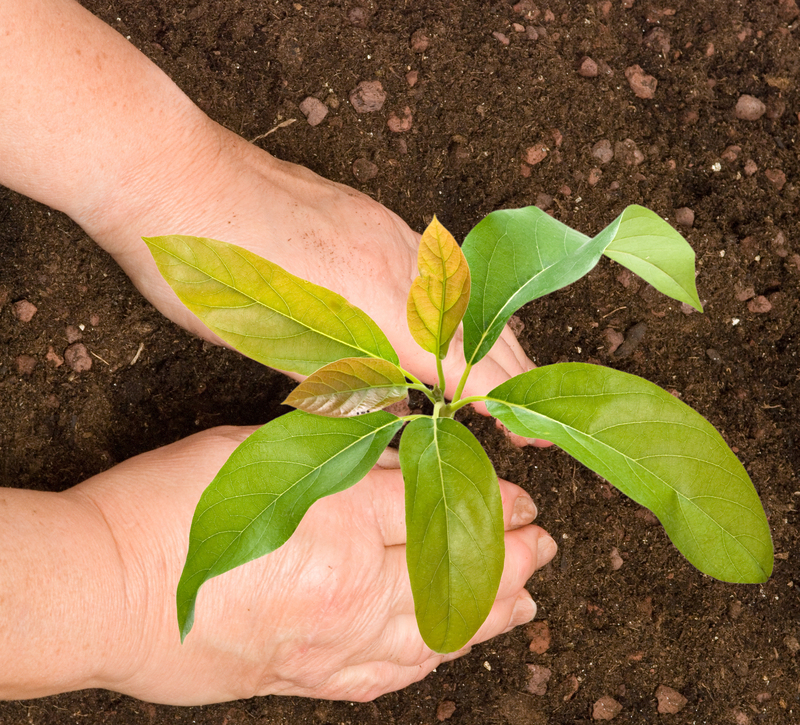The Climate Change Battle: Gardening Holds a Key to Victory
Posted on 14/06/2025
The Climate Change Battle: Gardening Holds a Key to Victory
Climate change is arguably the most pressing challenge humanity faces today. While global policies, renewable energy, and reduced emissions are vital, there's a silent but mighty force at play--gardening. Often considered a mere hobby or a weekend activity, gardening holds a powerful solution in the fight against climate change. In this article, we'll uncover the science-backed ways gardening assists climate change mitigation and explore concrete steps you can take to be part of the solution.
Why Climate Change Needs Grassroots Solutions
The battle against climate change can't be won by governments and corporations alone. The wide-ranging nature of this crisis demands that every individual and community acts. Here's why grassroots gardening is crucial:
- Immediate impact: Gardening is accessible to millions, allowing for collective action.
- Restores local biodiversity: Native and pollinator gardens provide habitats and increase ecosystem resilience.
- Enables carbon sequestration: Soils and plants absorb atmospheric carbon, reducing greenhouse gases.
- Improves resilience: Gardens offer food security, cooling, and flood control in cities.
- Educates and inspires: Gardening demonstrates visible climate solutions, inspiring broader change.

How Gardening Fights Climate Change
Climate change gardening goes beyond just planting flowers. It's a deliberate, science-based approach towards reducing carbon footprints and enhancing natural ecosystem services. Here's how gardening helps combat climate change:
1. Carbon Sequestration in Gardens
Gardens act as powerful carbon sinks. Through a process called photosynthesis, plants absorb carbon dioxide (CO2), a major greenhouse gas, and lock the carbon in their tissues and the soil. Committed home gardeners can make a big difference by:
- Planting trees, shrubs, and perennials, which store carbon for decades.
- Maintaining healthy soil organic matter with compost, mulch, and minimal tilling.
- Avoiding synthetic chemicals that harm soil microorganisms responsible for carbon storage.
2. Supporting Biodiversity and Resilient Ecosystems
Healthy ecosystems are more resistant to climate extremes and pests. Sustainable gardening practices cultivate habitats for pollinators, birds, and beneficial insects, which:
- Enhance pollination and food production.
- Reduce the need for chemical pesticides and fertilizers, lowering harmful emissions.
- Increase soil fertility and resilience to drought and floods.
Biodiverse gardens not only provide food and shelter for wildlife but also help maintain nature's delicate balance, crucial for climate adaptation.
3. Reducing Urban Heat Islands
Urban gardening is a strategic weapon in the fight against climate-induced heatwaves. Cities are notorious for so-called "heat islands" where temperatures soar higher due to concrete and asphalt absorbing and retaining heat. How does climate-conscious gardening help here?
- Green roofs and walls cool buildings, reducing energy consumption.
- Trees and dense planting provide shade and lower surface temperatures.
- Evapotranspiration from plants naturally cools the air.
The more greenery we add, the more we mitigate urban heat and its associated health issues.
4. Boosting Food Security and Reducing Food Miles
Growing your own food is a powerful climate action. Commercial agriculture and food transport have a significant carbon footprint. By growing fruits and vegetables at home or in community gardens, you:
- Reduce reliance on fossil-fuel transport ("food miles").
- Decrease the need for energy-intensive packaging and refrigeration.
- Encourage seasonal, local eating, which is more climate-friendly.
- Support healthier diets with fresh, nutrient-rich produce.
Less energy from farm to table means fewer greenhouse gases released.
5. Water Management and Flood Prevention
With climate change bringing unpredictable weather, including extreme rainfall and droughts, gardening practices can play a vital role in water management:
- Rain gardens and permeable landscapes reduce stormwater runoff and prevent flooding.
- Diversified planting improves soil structure, enabling better water infiltration and storage.
- Mulching and groundcover minimize evaporation, conserving water during drought.
Through these methods, environmentally friendly gardens act as buffers against climatic extremes.
6. Reducing Waste Through Composting
Organic waste in landfills produces methane, a potent greenhouse gas. Climate change-conscious gardening embraces composting, which:
- Recycles plant and kitchen waste into nutrient-rich soil amendments.
- Reduces methane emissions from landfills.
- Slashes reliance on synthetic fertilizers, decreasing fossil fuel use and emissions.
Adopting Sustainable Gardening Practices for the Climate
Gardening for victory over climate change is about more than what you grow--it's how you grow it. Follow these best practices to maximize your garden's positive environmental impact:
Choose Native and Climate-Resilient Plants
- Native species are adapted to local conditions, requiring less water, fertilizer, and pesticide.
- Drought-tolerant and climate-resilient varieties are crucial as weather patterns shift.
- Mix perennials with annuals for year-round cover and carbon storage.
Protect and Enrich Your Soil
- Practice no-dig or low-till methods to avoid releasing soil carbon.
- Incorporate compost and organic mulches to build up carbon and keep soils healthy.
- Use cover crops during offseason to prevent erosion and add nutrients.
Conserve Water and Use It Wisely
- Install rain barrels and use greywater to irrigate plants.
- Group plants by their water needs ("hydrozoning") to minimize waste.
- Incorporate drought-resistant landscaping, such as xeriscaping.
Encourage Wildlife and Pollinators
- Include a variety of flowering plants to support pollinators across seasons.
- Add birdhouses, bee hotels, and water sources to invite wildlife.
- Minimize pesticide use to protect beneficial insects and birds.
Grow Your Own Food Sustainably
- Start a kitchen garden focusing on high-yield, easy-to-grow crops.
- Use organic seeds and avoid genetically modified organisms where possible.
- Preserve excess produce through canning, drying, or sharing with neighbors to reduce waste.
Compost and Recycle Organic Matter
- Set up a backyard compost bin or join a community composting program.
- Compost not just plant clippings but also food scraps, coffee grounds, and eggshells.
- Use the finished compost to enhance garden soils, closing the nutrient loop.
The Power of Community Gardens in Fighting Climate Change
Community gardening amplifies the impact of individual actions by bringing together neighbors, schools, and local organizations. These shared green spaces not only sequester more carbon, support biodiversity, and reduce urban heat, but they also:
- Promote climate education through workshops and hands-on learning.
- Provide low-cost, healthy food to underserved communities.
- Build social ties, increasing motivation and resilience during climate stressors.
- Encourage local climate activism and broader sustainability initiatives.
By multiplying the benefits, community gardens become hubs of local climate action, fostering hope and adaptation at the grassroots level.
Modern Technologies Enhancing Climate Change Gardening
Modern technology further empowers gardeners to drive climate action. Here's how:
- Smart irrigation systems reduce water usage through sensors and automated scheduling.
- Soil health monitoring devices track moisture and nutrients, minimizing wasteful practices.
- Online seed exchanges and plant-sharing networks promote biodiversity and sustainable sourcing.
- Apps and online communities provide support and climate-friendly gardening education worldwide.
Integration of these innovations with traditional wisdom transforms home and urban gardening into a cutting-edge frontline of the climate struggle.
Measuring Your Garden's Climate Impact
Wondering how much your garden is helping in the battle against climate change? Consider these metrics:
- Carbon sequestered: Calculate the biomass of trees, shrubs, and stored soil carbon.
- Food miles avoided: Track how much produce you no longer buy from stores.
- Biodiversity supported: Count pollinator species, wildlife sightings, and diversity of plants.
- Waste reduced: Keep tabs on composted versus trashed organic matter.
For a more accurate measure, many organizations offer garden carbon calculators and biodiversity tracking tools online. Every small gain adds up--the more involved you are, the stronger your climate-positive impact.
Common Challenges and How to Overcome Them
Embarking on a climate-conscious gardening journey comes with challenges. Here's how to tackle the most common ones:
- Lack of space: Try container gardening, vertical gardens, or support local community gardens.
- Limited time: Focus on perennials, low-maintenance crops, and mulching to suppress weeds.
- Poor soil quality: Build soil health gradually with compost and organic matter.
- Insufficient knowledge: Join local gardening groups, attend workshops, or follow credible online sources.
- Extreme weather: Choose climate-adapted plants and provide shelter with shade cloths or windbreaks.
Every step matters. Adapt and start where you can--your contribution is vital in the greater battle for a stable climate.
Inspiring Stories: Gardening Victories Against Climate Change
Around the world, climate change gardening is producing inspiring outcomes:
- In Detroit, USA, urban farms transformed vacant lots into green oases, offsetting thousands of pounds of CO2 and providing healthy food for communities.
- In London, UK, rooftop gardens and green walls have reduced city temperatures, improved air quality, and supported urban biodiversity.
- In India, school gardens teach children sustainable growth techniques and supply fresh vegetables despite droughts.
- In Australia, regenerative gardens rebuild fire-damaged landscapes, restoring soil carbon and pulling species back from the brink.

How to Get Started: Your Action Plan for Climate Change Gardening
- Research your local climate, native plants, and sustainable practices.
- Start small--a single container or raised bed can make a difference.
- Join a community garden or connect with neighbors for collective action.
- Compost your organic waste and use it in your garden beds.
- Share your progress online to inspire others.
- Advocate for more green spaces in your community and support climate policies.
Every seed you plant is a vote for a healthier planet.
Conclusion: Harnessing the Victory Potential of Gardening
The battle against climate change can feel overwhelming--but every garden is a battleground for the planet's future. By adopting environmentally friendly gardening practices, you help sequester carbon, restore biodiversity, reduce emissions, cool cities, and inspire your community. Gardening is not just an act of beauty or sustenance--it is an act of climate victory.
Join the movement. Cultivate hope, resilience, and real action in your backyard. In this climate change struggle, gardening holds a key to victory--and that key is in your hands.
Further Reading and Resources
- Royal Horticultural Society - Climate Change Gardening
- Garden Organic - Gardening for Climate Change
- EPA - Greening Your Garden
- WWF - How Gardening Can Help Tackle Climate Change
Latest Posts
Adaptable strategies to mitigate wind in your garden
Compost Chronicles: The Art of Organic Waste into Fertile Soil
Comprehensive Guide to Shielding Your Garden from Weather Damage



